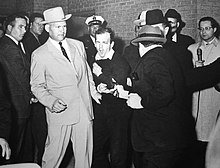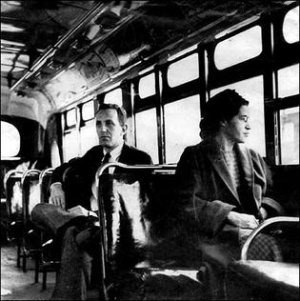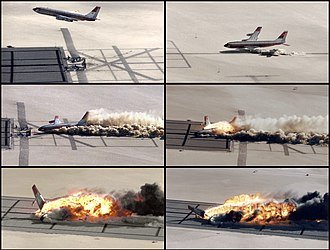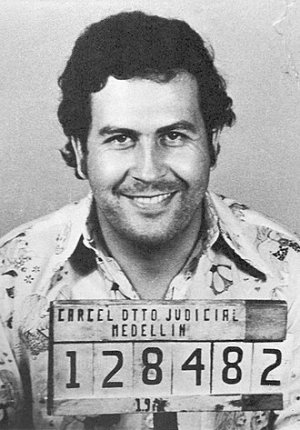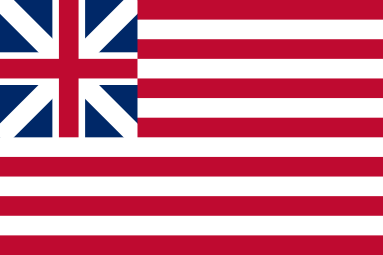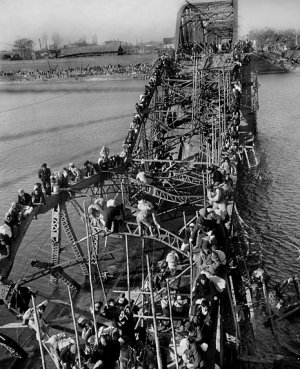4th December
- 1872 – The American brigantine Mary Celeste is discovered drifting in the Atlantic. Her crew is never found.
Mary Celeste often erroneously referred to as Marie Celeste was a Canadian built, American-registered merchant
brigantine that was discovered adrift and deserted in the Atlantic Ocean off the
Azores Islands on December 4, 1872. The Canadian brigantine
Dei Gratia found her in a dishevelled but seaworthy condition under
partial sail and with her lifeboat missing. The last entry in her log was dated ten days earlier. She had left New York City for
Genoa on November 7 and was still amply provisioned when found. Her cargo of alcohol was intact, and the captain's and crew's personal belongings were undisturbed. None of those who had been on board were ever seen or heard from again.
The
keel of the future
Mary Celeste was laid in late 1860 at the shipyard of Joshua Dewis in the village of
Spencer's Island, on the shores of the
Bay of Fundy in
Nova Scotia. The ship was constructed of locally felled timber, with two masts, and was rigged as a
brigantine; she was
carvel-built, the hull planking flush rather than overlapping. She was launched on May 18, 1861, given the name
Amazon, and registered at nearby
Parrsboro on June 10, 1861.
For her maiden voyage in June 1861,
Amazon sailed to
Five Islands, Nova Scotia to take on a cargo of timber for passage across the Atlantic to London. After supervising the ship's loading, Captain McLellan fell ill; his condition worsened. The
Amazon returned to Spencer's Island where McLellan died on June 19. John Nutting Parker took over as captain, and resumed the voyage to London, in the course of which
Amazon encountered further misadventures. She collided with fishing equipment in the narrows off
Eastport, Maine, and after leaving London ran into and sank a
brig in the
English Channel.
In October 1867, at
Cape Breton Island,
Amazon was driven ashore in a storm, and was so badly damaged that her owners abandoned her as a wreck. On October 15, she was acquired as a
derelict by Alexander McBean, of
Glace Bay, Nova Scotia. Within a month, McBean sold the wreck to a local businessman, who in November 1868, sold it to Richard W. Haines, an American mariner from New York. Haines paid US$1,750 for the wreck, and then spent $8,825 restoring it. He made himself her captain, and, in December 1868, registered her with the
Collector of the Port of New York as an American vessel, under a new name,
Mary Celeste.
In October 1869, the ship was seized by Haines's creditors, and sold to a New York consortium headed by James H. Winchester. During the next three years, the composition of this consortium changed several times, although Winchester retained at least a half-share throughout. No record of
Mary Celeste's trading activities during this period have been found. Early in 1872, the ship underwent a major refit, costing $10,000, which enlarged her considerably.
Benjamin Briggs was the Captain of the ship and he chose the crew for this voyage with care. First mate Albert G. Richardson was married to a niece of Winchester and had sailed under Briggs before. Second mate Andrew Gilling, aged about 25, was born in New York, and was of Danish extraction. The steward, newly married Edward William Head, was signed on with a personal recommendation from Winchester. The four general seamen were Germans from the
Frisian Islands: the brothers Volkert and Boz Lorenzen, Arian Martens, and Gottlieb Goudschaal.
On Tuesday morning (November 5),
Mary Celeste left Pier 50 with Briggs, his wife and daughter, and seven crew members, and moved into
New York Harbor. The weather was uncertain, and Briggs decided to wait for better conditions. He anchored the ship just off
Staten Island, where Sarah used the delay to send a final letter to her mother-in-law. The weather eased two days later, and
Mary Celeste left the harbor and entered the Atlantic.
Dei Gratia had reached a position of
38°20′N 17°15′W, midway between the
Azores and the coast of Portugal at about 1 p.m. on Wednesday, December 4, 1872, land time. Captain Morehouse came on deck, and the helmsman reported a vessel heading unsteadily towards
Dei Gratia at a distance of about six miles. The ship's erratic movements and the odd set of her sails led Morehouse to suspect that something was wrong. As the vessel drew close, he could see nobody on deck, and he received no reply to his signals, so he sent Deveau and second mate John Wright in a ship's boat to investigate. The pair established that this was the
Mary Celeste by the name on her stern; they then climbed aboard and found the ship deserted. They found the ship's daily log in the mate's cabin, and its final entry was dated at 8 a.m. on November 25, nine days earlier. It recorded
Mary Celeste's position then as
37°1′N 25°1′W off
Santa Maria Island in the Azores, nearly 400 nautical miles from the point where
Dei Gratia encountered her. Deveau saw that the cabin interiors were wet and untidy from water that had entered through doorways and skylights, but were otherwise in reasonable order. He found personal items scattered about Briggs' cabin, including a sheathed sword under the bed, but most of the ship's papers were missing along with the captain's navigational instruments.
Deveau returned to report these findings to Morehouse, who decided to bring the derelict into Gibraltar 600 nautical miles away. Under maritime law, a
salvor could expect a substantial share of the combined value of rescued vessel and cargo, the exact award depending on the degree of danger inherent in the salvaging. Morehouse divided
Dei Gratia's crew of eight between the two vessels, sending Deveau and two experienced seamen to
Mary Celeste while he and four others remained on
Dei Gratia. The weather was relatively calm for most of the way to Gibraltar, but each ship was seriously undercrewed and progress was slow.
Dei Gratia reached Gibraltar on December 12;
Mary Celeste had encountered fog and arrived on the following morning. She was immediately impounded by the vice admiralty court to prepare for salvage hearings.

